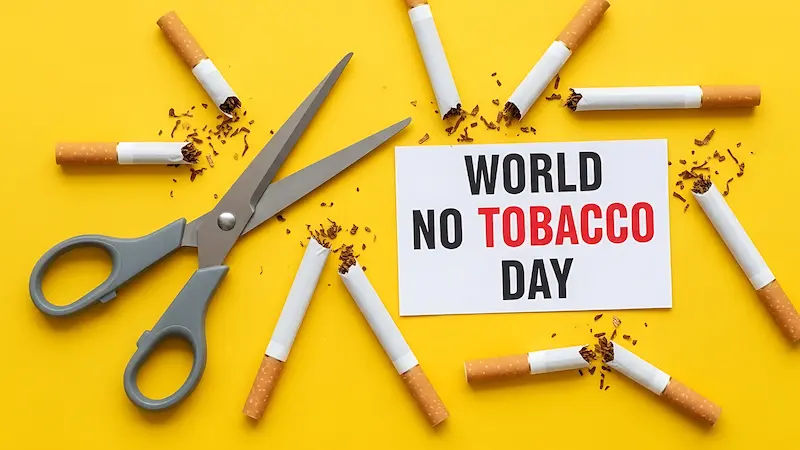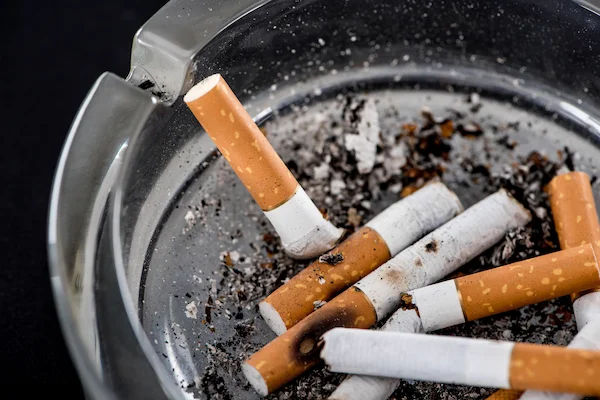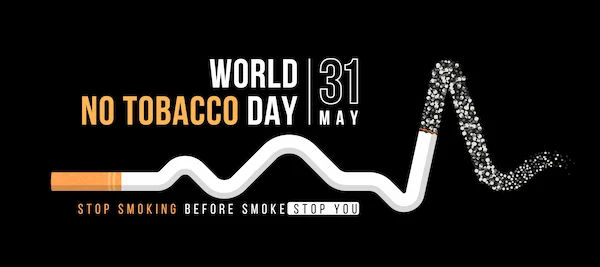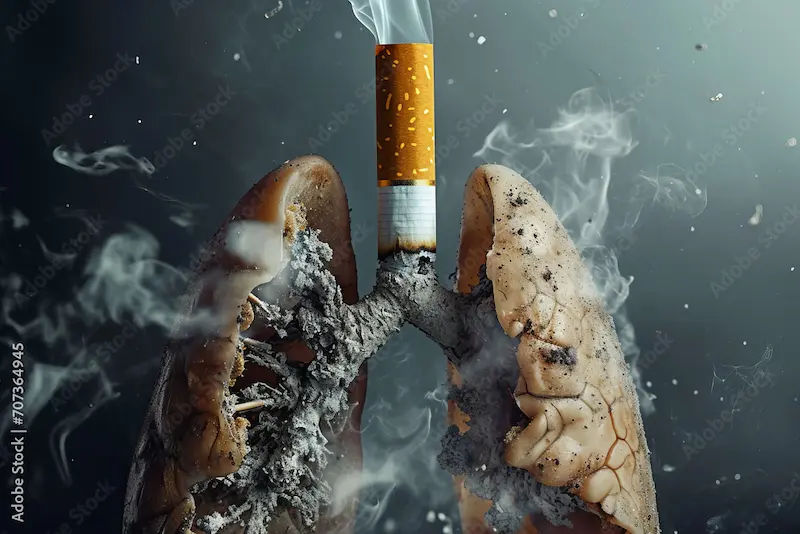Understanding Vaping Dental Health Risks
Learn how vaping affects your teeth and gums, the hidden dental health risks involved, and tips to protect your oral health.

Written by Dr. Shaik Abdul Kalam
Reviewed by Dr. D Bhanu Prakash MBBS, AFIH, Advanced certificate in critical care medicine, Fellowship in critical care medicine
Last updated on 13th Jan, 2026

Introduction
For years, vaping has been marketed as a cleaner, safer alternative to traditional cigarettes. While the focus has often been on lung health, a growing body of evidence reveals a troubling truth for anyone who cares about their smile: vaping poses significant and unique dental health risks. The cloud of vapour may seem harmless, but it creates a perfect storm inside your mouth that can lead to gum disease, tooth decay, and long-term damage. Many users are unaware that the very ingredients designed to create a smooth experience, like propylene glycol and flavourings, are actively working against their oral health. This article will pull back the curtain on how vaping directly impacts your teeth and gums, separating myth from fact. We'll explore the science behind the damage, from dry mouth to inflamed gums, and provide actionable steps you can take to protect your smile. Understanding these risks is the first step toward making informed decisions about your health.
How Vaping Works and Why It's a Dental Concern
To understand the dental health risks, it's crucial to know what you're inhaling. Unlike smoking, which burns tobacco, vaping devices heat a liquid (e-cigarette juice or "vape juice") into an aerosol that is then inhaled.
The Deceptive Cloud: More Than Just Water Vapour
Many mistakenly believe the aerosol produced by vaping is simple water vapour. In reality, it's a complex mixture of ultrafine particles, chemicals, and heavy metals. This aerosol coats the entire oral cavity teeth, gums, tongue, and cheeks delivering its payload directly to the tissues. This constant exposure is what sets the stage for a cascade of oral health issues, making the link between vaping and teeth a critical area of concern.
Key Culprits in Vape Juice: Nicotine, PG/VG, and Flavourings
The primary ingredients in vape juice are the main actors in this dental drama:
Nicotine: Whether derived from tobacco or synthesised, nicotine is a vasoconstrictor. It reduces blood flow to the gums, depriving them of essential oxygen and nutrients. This impairs the body's ability to fight infection and heal, making gums more vulnerable to disease.
Propylene Glycol (PG) and Vegetable Glycerin (VG): These are humectants, meaning they absorb water. When aerosolised and inhaled, they create an exceptionally dry environment in the mouth. PG also breaks down into acids that can erode tooth enamel.
Flavourings: The thousands of chemical compounds used to create flavours like "cotton candy" or "mint" are particularly problematic. When heated, they become sticky and adhere to teeth. Furthermore, many are known to be cytotoxic, damaging living cells in the oral mucosa.
The Direct Impact of Vaping on Your Oral Health
The combination of these ingredients leads to several specific and serious dental conditions.
Xerostomia: The Dangers of Vaping-Induced Dry Mouth
Saliva is your mouth's natural defense system. It washes away food particles, neutralises acids produced by bacteria, and helps remineralise enamel. The PG/VG in vape juice directly causes dry mouth (xerostomia). A perpetually dry mouth creates an environment where harmful bacteria thrive, significantly increasing the risk for cavities and bad breath. This is one of the most immediate and common effects reported by vapers.
Inflamed Gums and Beyond: The Link to Periodontal Disease
The reduced blood flow caused by nicotine means your gums don't get the signal to fight off bacteria effectively. This leads to inflammation, a condition known as gingivitis (red, swollen, bleeding gums). If left unchecked, gingivitis can progress to periodontitis, a severe form of gum disease where the inner layer of the gum and bone pull away from the teeth, forming pockets that become infected. This can ultimately lead to tooth loss. Studies have shown that vapers exhibit similar rates of gum disease biomarkers as traditional smokers.
Enamel Erosion and a Cavity-Prone Environment
The tooth decay process is accelerated by vaping in two ways. First, the dry mouth allows bacteria to produce more acid. Second, the flavour additives themselves are often acidic. This double assault softens and wears away the protective enamel on your teeth. Weakened enamel is highly susceptible to cavities, and this damage is irreversible.
Oral Mucosal Lesions and Cell Damage
The constant exposure to heated chemicals can cause direct damage to the soft tissues in your mouth. This can manifest as inflammation under the tongue ("vape tongue"), red patches, or even white patches called leukoplakia, which can be precancerous. Research is ongoing, but the cell damage caused by vaping is a significant concern for long-term oral cancer risks.
Consult a Dentist for the best advice
Beyond the Basics: Lesser-Known Dental Consequences
The damage isn't limited to cavities and gum disease. Vaping has other surprising effects on oral health.
Bruxism: The Unseen Connection to Teeth Grinding
Nicotine is a stimulant. For some users, especially those who vape close to bedtime, it can lead to unconscious teeth grinding or clenching, known as bruxism. This can cause worn-down teeth, jaw pain, headaches, and even cracked teeth, requiring extensive dental work.
The Aesthetic Downside: Staining and "Vaper's Tongue"
While vaping may not stain teeth as severely as tar from cigarettes, the nicotine and flavouring compounds can still lead to yellowing over time. Additionally, a condition known as "vaper's tongue" describes a temporary loss of taste sensation, often caused by the constant coating of the tongue by vape juice, which can affect your enjoyment of food.
Vaping vs. Smoking: Is One Better for Your Teeth?
This is a common question. While vaping eliminates tar, which is a major cause of staining and cancer in smokers, it introduces its own set of problems. The current scientific consensus is that vaping is not a safe alternative for your oral health. It may present different risks, such as a higher propensity for dry mouth and specific enamel damage from flavourings, but the overall impact on gum disease and oral tissue health is similarly negative. Quitting all nicotine products is the only sure way to protect your smile.
Protecting Your Smile: Mitigation and Recovery
If you vape, proactive dental care is non-negotiable.
Essential Oral Hygiene Tips for Vapers
Hydrate Aggressively: Drink plenty of water throughout the day to combat dry mouth.
Use Fluoride: Switch to a high-fluoride toothpaste and consider an alcohol-free fluoride mouthwash to strengthen enamel.
Be Diligent: Brush twice daily and floss meticulously to remove the sticky residue from vape juice.
Regular Dental Visits: See your dentist every six months for cleanings and check-ups. Be honest about your vaping habit so they can monitor for early signs of trouble.
The Ultimate Solution: Steps to Quit Vaping
The most effective way to eliminate these dental health risks is to quit. The recovery of your oral environment begins almost immediately. Saliva flow returns to normal, gum inflammation decreases, and your mouth's natural ability to heal itself is restored. If you are struggling to quit, speak to your doctor. If your oral health symptoms, like persistent gum bleeding or mouth sores, concern you, consult a doctor online with Apollo24|7 for personalised advice and support strategies.
Conclusion
The notion that vaping is a harmless habit for your oral health is a dangerous myth. The evidence is clear: the combination of nicotine, propylene glycol, and chemical flavourings creates a hostile environment in your mouth, leading to dry mouth, gum disease, tooth decay, and potential long-term cell damage. While the cloud may vanish quickly, the effects on your smile can be lasting. Understanding these dental health risks empowers you to take action. Whether you choose to intensify your oral care routine while vaping or take the brave step toward quitting, your future self will thank you for preserving a healthy, vibrant smile. Your oral health is a window to your overall well-being; it's worth protecting. If you notice any changes in your oral health that worry you, consult a dentist for a comprehensive evaluation and peace of mind.
Consult a Dentist for the best advice
Consult a Dentist for the best advice

Dr Santanu Mukherjee
Dentist
12 Years • BDS, MDS Oral Pathology & Microbiology
Kolkata
Dental Clinic, Kolkata

Dr. Prabhala Sudheer
Dentist
11 Years • BDS
Hyderabad
BRIGHT SMILES MEDICARE & DENTAL CARE, Hyderabad

Dr. Sainik Pradhan
Dentist
2 Years • BDS
EGRA
PRADHAN DENTAL CLINIC, EGRA

Dr. Gourav Sharma
Dentist
13 Years • BDS
Shivpuri
Dr Gourav Sharma Best Painless Dentist shivpuri, Shivpuri

Dr. Sanjna Nayar
Dentist
33 Years • BDS,MDS-Prosthodontics & Implantology, PhD - Dental Implantology, Master in Prosthetic Section Implants ICOI USA, Fellow in Implantology ICOI USA
Delhi
Apollo Hospitals Indraprastha, Delhi
(25+ Patients)
More articles from Smoking Cessation
Frequently Asked Questions
1. Can vaping cause white spots on my gums?
Yes, vaping can lead to leukoplakia, which are white patches on the gums, tongue, or inside of the cheeks. These patches can be a reaction to irritation from the vape aerosol and, in some cases, may be precancerous. It is essential to have any new or changing white spots evaluated by a dentist or doctor.
2. How long after quitting vaping will my gum health improve?
You may start to see improvements in as little as a few weeks. As nicotine leaves your system, blood flow returns to your gums, reducing inflammation and bleeding. Significant healing from gingivitis can occur within one to two months of quitting, especially with good oral hygiene.
3. Is there a specific type of vape juice that is less harmful for teeth?
There is no 'safe' vape juice for dental health. While unflavoured juices may avoid the additional acids from flavourings, they still contain PG/VG (which causes dry mouth) and often nicotine. The fundamental mechanism of vaping is inherently damaging to the oral environment.
4. Why do my teeth hurt when I vape?
Tooth pain from vaping can stem from several issues: sensitivity due to enamel erosion from acidic flavourings, gum recession exposing sensitive root surfaces, or even bruxism (teeth grinding) caused by the stimulant effect of nicotine. This pain is a sign that damage is occurring.
5. Can vaping cause oral thrush?
Yes. The dry mouth caused by vaping creates an environment where the fungus Candida albicans, which causes oral thrush (white, cottage-cheese-like patches), can overgrow. A healthy flow of saliva normally keeps this fungus in check.

.webp)


